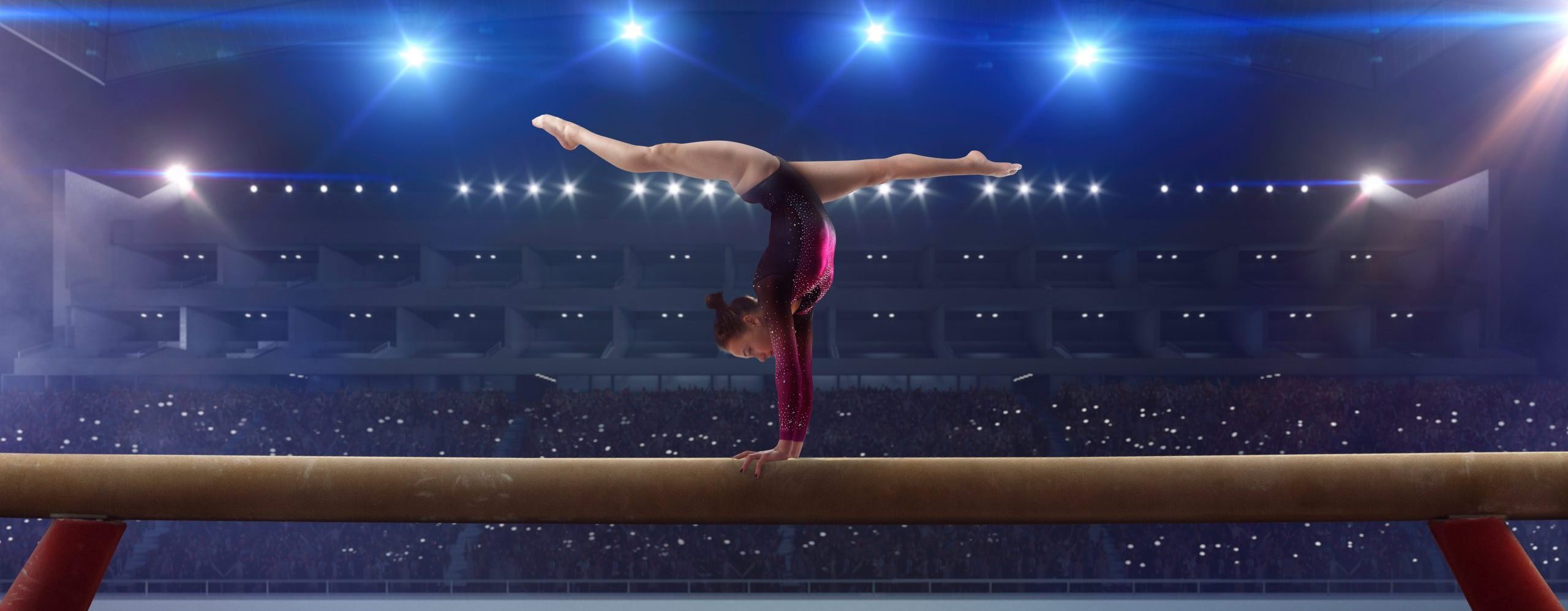
August 30, 2024
AI Leaps into Gymnastics Judging
TL;DR
- AI’s influence has become increasingly profound and influential across industries and sectors, with sports being no exception. The Judging Support System (JSS), an innovative Japanese-made AI technology used for Gymnastics at the 2024 Paris Olympics, exemplifies this trend.
- The JSS serves as a microcosm of AI’s broader impact on various industries – innovative tools enhance human performance and reduce bias, but likely require reskilling and upskilling for seamless adoption.
- In gymnastics judging, the JSS demonstrates how AI detail and pattern recognition can harmoniously complement human expertise and appreciation for artistry. Fostering initiatives that develop a more skilled workforce can preserve and enhance human expertise and prevent job displacement. Policymakers should take note.
AI increasingly influences every aspect of society, from finance and manufacturing to retail, healthcare, and education. At all levels of government, legislators grapple with how to harness its benefits while safeguarding against its risks. AI is so pervasive that it’s even permeating seemingly innocuous things, like gymnastics competitions.
At the recent Paris Olympics, AI was everywhere. From enhancing the viewing experience to optimizing athlete performance through AI-powered training regimens, AI is revolutionizing how audiences and athletes engage with sports. Even further, recent articles by The Verge and MIT have shown how this game-changing technology will transform how sports themselves are judged and evaluated.
Since 2017, Japanese company Fujitsu has been working with the International Gymnastics Federation (FIG) to develop an artificially intelligent Judging Support System (JSS). At last year’s 2023 World Championship in Antwerp, Belgium, JSS made its debut.
Prior to the development of JSS, judges used simple video footage to review a routine. With JSS, judges capture and calibrate what the human eye cannot—a movement that may be off by a mere three or four degrees, whether an athlete completes a full turn or merely a 164-degree turn. In other words, minute differences can determine whether an athlete makes or misses the podium.
As it turns out, AI is no stranger to the sports world. Tennis, for example, has deployed The Hawk-Eye Live, an electric line calling system that has replaced the need for line judges. Hawk-Eye answers simple yes/no questions about whether the ball is “in” or “out,” tracking a ball’s trajectory and providing a 3D representation of the ball’s path. By comparison, the JSS performs a much more complicated analysis—measuring the range of hundreds of movements across a gymnast’s body using cameras positioned at different vantages to capture a 3D view of a gymnast’s performance. It then analyzes the joint positions in real-time, comparing them against hundreds of rules and standards defined in FIG’s Code of Positions rulebook.
The JSS does not tire after hours of judging performances, unlike a human judge. Detecting details the human eye may overlook helps level the playing field and remove human bias. For example, AI can eliminate “leotard bias” or favoritism for countries like the U.S. and Russia, which traditionally excel in gymnastics. Additionally, it can remove human sequencing bias, ensuring that the order of performances does not unfairly impact scoring.
Because of the complicated nature of gymnastics judging, the JSS is still a supplementary tool to resolve inquiries in scoring and disputes among judges. During the 2023 World Championship, judges used the JSS to validate human judgments, and in most instances, the gymnasts’ scores remained the same. It has yet to develop the sophistication to replace line judges like Hawk-Eye for some tennis tournaments, where technology has become the sole determinant of whether points are in or out.
The JSS cannot yet effectively comprehend the most subjective aspect of scoring: the gymnast’s artistry. The system can neither interpret the value of a creative dance element nor understand a choice connection between two routine components. As a result, human judges remain essential for assessing the creative nuances and complexities of a gymnast’s overall performance.
Beyond gymnastics, debates continue over how AI will complement or compromise human performance. AI has been widely discussed as a means to enhance worker efficiency across the workplace. Regulators and policymakers should consider how AI can complement human expertise while ensuring, through workforce development and reskilling initiatives, that human expertise is preserved and enhanced. As seen in gymnastics judging, the JSS demonstrates the power of AI to detect nuances beyond human capability and do so without bias. Whether on the court or in the boardroom, human judges may be fallible, and AI has already begun to bridge the gaps.
Emma O’Rourke is a Senior Research Analyst at the RXN Group.

